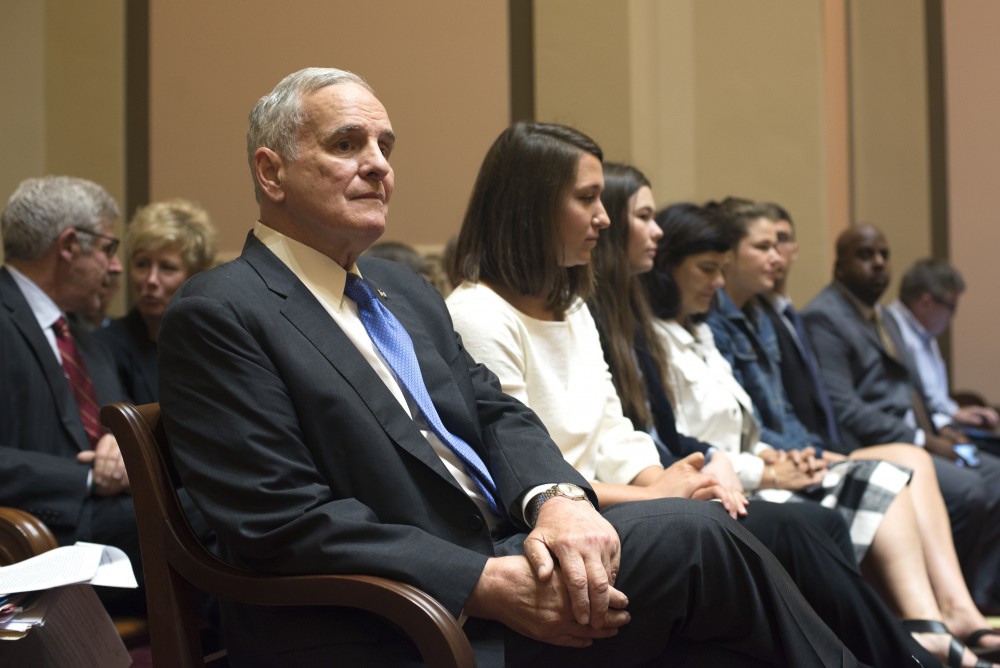A legal battle between Gov. Mark Dayton and the state Legislature reached the Minnesota Supreme Court Monday.
Attorneys for Dayton and the Legislature presented their arguments to Supreme Court justices concerning the governor’s line-item veto of the House and Senate’s operational budget. The Legislature claims Dayton overstepped his constitutional authority when he signed a series of budget bills in May but chose to line-item veto the Legislature’s funding for the next two years.
A Ramsey County judge ruled against Dayton’s veto in July, saying the move violated the state constitution by making the branches of state government unequal. The same judge had granted temporary funding for the Legislature in June. Dayton appealed the judge’s ruling to the Supreme Court.
“We are here because of an engineered situation by the executive branch,” said Doug Kelley, the Legislature’s attorney. “My client does not have the ability to save itself.”
While the governor can veto line-item appropriations, Kelley said the power was used inappropriately.
“[Dayton] has rendered one branch inoperative and unable to defend themselves,” he said.
Sam Hanson, Dayton’s attorney, argued the governor acted within his constitutional authority. Dayton’s line-item veto was meant to draw lawmakers back to the Capitol to renegotiate provisions he disagreed with in the tax bill.
Vetoing the Legislature’s funding was a better option than vetoing the entire tax bill, Hanson said, which would have withheld appropriations for the Minnesota Department of Revenue, laying off many workers.
“His only tool to continue negotiation was his veto power,” he said.
Legislators could have overridden the veto with a two-thirds majority vote in both the House and Senate if they had reconvened after Dayton’s line-item veto, Hanson said.
The governor is the only person in the state who can call a special session of the state legislature, so lawmakers would have had to agree to certain terms before resuming.
Dayton attended the proceedings and made a brief statement to the press after the court recessed.
“The [question] the court will answer is: was my veto constitutional? And I believe it clearly is,” Dayton said.
Both the governor and the Legislature have refused to meet while court proceedings are underway.
“I’m disappointed that the governor continues to fight this. This is a clear violation of separation of powers,” House Majority Leader Joyce Peppin said during the post-proceedings press conference.
If the court thoroughly evaluates the constitution, Peppin said she thinks they will rule in favor of the Legislature.
“I’m confident they will make the right decision,” she said.
The court did not set a deadline for a decision, but it is likely to be within the next month.
“There is no deadline on their decision, although they did mention the Oct. 1 deadline for the temporary funding arrangement that we have,” Hanson said. “So likely, they are aiming at that date, but it is in their hands.”








